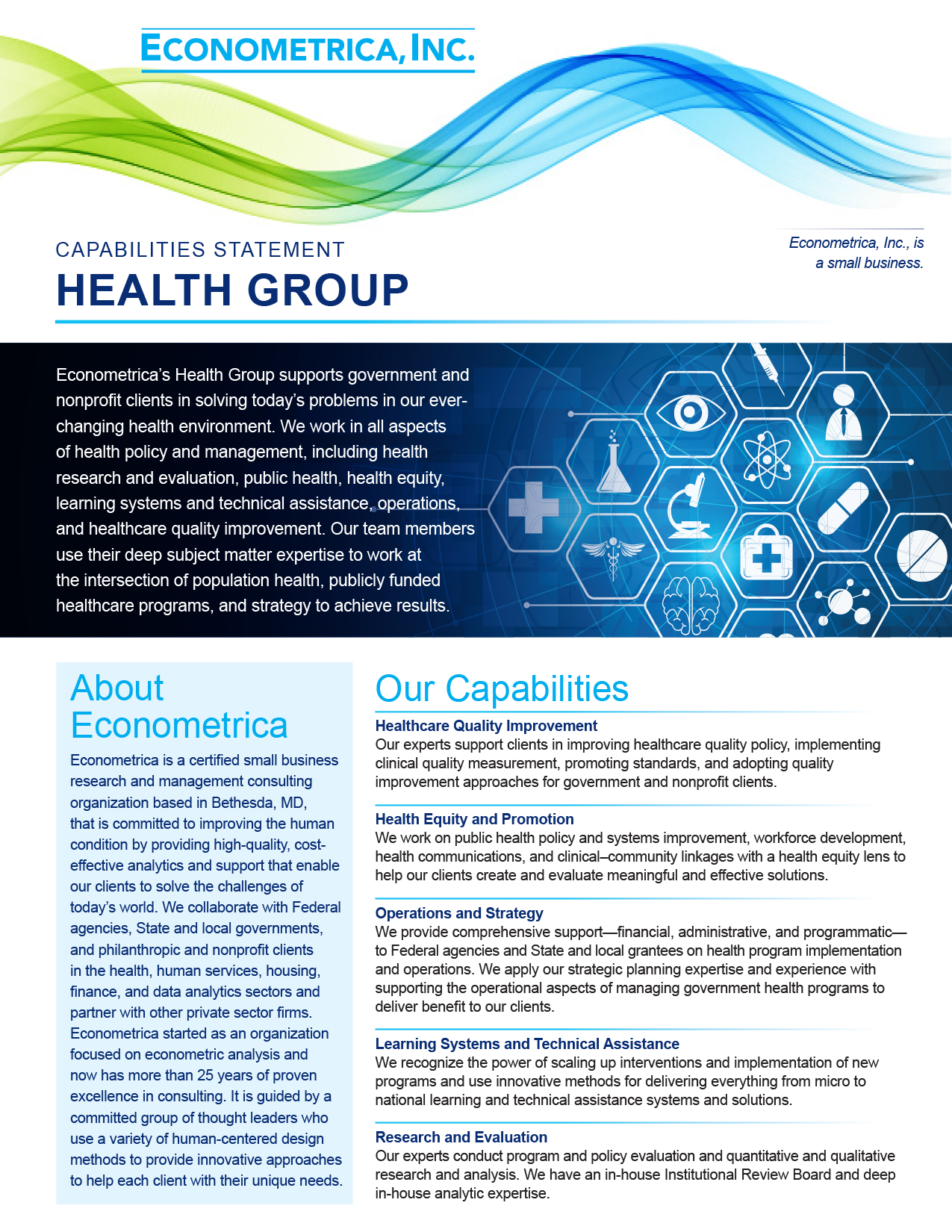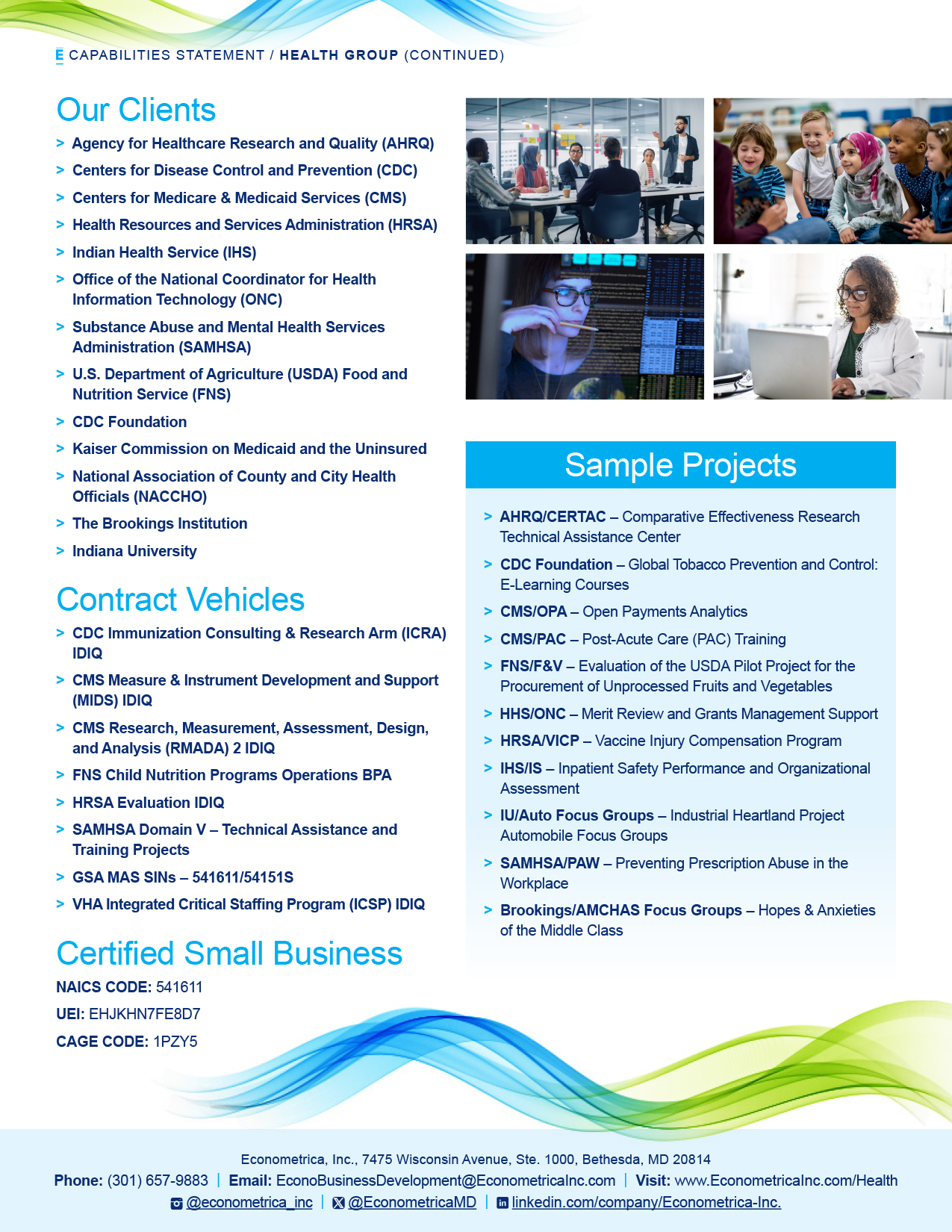Health Group
Our Health Group works with Federal, State, nonprofit, and philanthropic clients to develop solutions to some of the most challenging health problems. We draw on methods from health research and evaluation, public health, learning systems and technical assistance, management and operations, and healthcare quality improvement and measurement.
RESEARCH &
EVALUATION
QUALITY
IMPROVEMENT
LEARNING SOLUTIONS &
TECHNICAL ASSISTANCE
PROGRAM IMPLEMENTATION
& OPERATIONS
PUBLIC
HEALTH
*Asterisk Fields Required
*Asterisk Fields Required
Our Expertise
Focal Areas
- Quality improvement in publicly funded healthcare
- Maternal and child health
- Health promotion
- Mental and behavioral health
- Injury and chronic disease prevention
Practical Experience
- Clinical expertise
- Healthcare administration
- Public health experts
- Data science and analytics
- Workforce development
Client-Specific Approach
- Human-centered design
- Project-specific subject matter expertise
- Project management planning
- Innovative and personalized approaches
- Risk management approach
Your Partner in Problem-Solving
Econometrica’s Health Group supports government and nonprofit clients in solving today’s problems in our ever-changing health environment. We work in all aspects of health policy and management, including health research and evaluation, public health, health promotion, learning systems and technical assistance, operations, and healthcare quality improvement. Our team members use their deep subject matter expertise to work at the intersection of population health, publicly funded healthcare programs, and strategy to achieve results.

Jean O’Connor, J.D., M.P.H., Dr.P.H., FACHE
Health Director
Our Capabilities
Download Our Expertise Overview
DATA ANALYTICS
GROUP
HOUSING
& FINANCE
COMMUNICATIONS
COMMUNICATIONS


